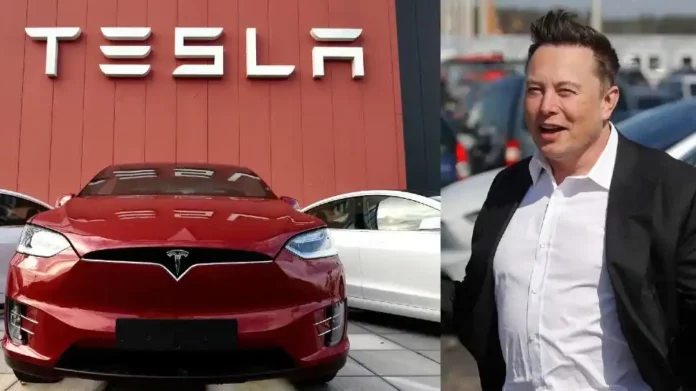Elon Musk, the CEO of Tesla, stated that his company’s entry into the Indian electric vehicle (EV) industry will be a “natural progression” and that India, like every other nation, should have electric cars.
India is currently the world’s most populated country based on population. According to the billionaire, India should have electric cars on par with the rest of the globe. During a meeting at X Spaces with Nicolai Tangen, the CEO of Norges Bank Investment Management, Musk said, “It’s a natural progression to provide Tesla electric vehicles in India.” “All vehicles will go electric and it is just a matter of time,” according to Musk.
Tesla has recently increased its efforts to capture a larger portion of the Indian market and is actively seeking a suitable location for the construction of a cutting-edge manufacturing facility. Tesla Inc. has received enticing land offers from the state governments of Gujarat and Maharashtra for the construction of an EV manufacturing facility. This signifies a noteworthy progression in India’s electric vehicle landscape.
Building the proposed facility would reportedly cost between $2 and $3 billion, and it would provide Tesla’s electric vehicle to both domestic and international consumers. The move comes after India’s new EV policy was introduced, which offered incentives for setting up manufacturing facilities there. Being a significant global manufacturer of electric vehicles, Tesla plans to develop a significant manufacturing presence in India.

Tesla’s land in India for EV manufacturing
One of the many primary goals of the government’s EV plan is to position India as a desirable location for the production of EVs with cutting-edge technology. These include attracting investments from reputable foreign EV manufacturers, pushing Indian consumers to embrace state-of-the-art EV technology, and bolstering the country’s Made in India initiative.
A minimum investment barrier of Rs 4150 crore ($500 million) and large levels of domestic value addition (DVA) are recommended for manufacturers, per the policy. In addition, the government requires that at least 25% of the parts needed to construct the vehicles be sourced locally within three years of the manufacturing unit’s establishment. It is projected that this localization level will increase to 50% by the end of the fifth year of operation. For automobiles costing $35,000, a five-year customs duty of 15 percent would be applied if the company built manufacturing facilities in India within three years.
As part of its investment goals, Tesla intends to send a team of experts to India to look for possible locations for future production facilities. According to an article in the Financial Times citing an Indian official, the government will openly accept submissions by the end of this month for the EV tariff reduction scheme, which will allow qualifying firms to import up to 8,000 vehicles yearly.
When Musk and Prime Minister Narendra Modi met in New York last year, the billionaire expressed his extreme excitement for India’s future and showered the PM with admiration. At that point, Musk had voiced his conviction that the maker of electric vehicles would reach the nation “as soon as humanly possible.”


